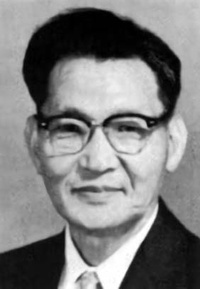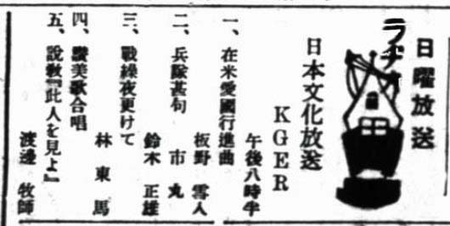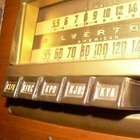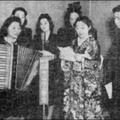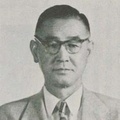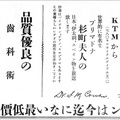The Rafu Japanese United Church (United Church) was established in February 1918 through the merger of three churches: the Rafu Japanese Congregational Church, the Rafu Presbyterian Church, and the Japanese Bethlehem Congregational Church.
The church actively lobbied the Japan Cultural Broadcasting Association (see Part 3 ) and decided to start a new Japanese language program on November 14, 1937. The program was called "Sunday Cultural Broadcasting" and was broadcast for 30 minutes every Sunday from 8:30 pm by KGER station in Long Beach, hosted by Pastor Sozaburo Watanabe of the United Church.
The following has been announced for the first day's show:
- About the start of this broadcast Yaemitsu Sugimachi
- Congratulatory remarks by Vice Consul Koichi Suzuki
- Hymn "Glory of Eternity" United Church Choir Conductor: Tatsuo Suisun
- Sermon "What we should rely on in this world" by Rev. Sozaburo Watanabe
The first episode was a rather formal celebration of the start of broadcasting, but the following week, the show started to feature what was thought to be the original aim of the show. In addition to a pastor's sermon, records imported from Japan were played. Rather than emphasizing the religious aspect, the show added entertainment elements to make it more accessible to the general listeners.
The second program is as follows:
- Popular song "Aim for it" (Military Aircraft Bushi) by Katsutaro, Ichimaru, and Katsuhiko Haida
- Solo song "Prayer for the Home Front" by Tsubomi Kanehiro
- "Gidayu Kuzushi" by Tora Yuki
- Popular song "White Hibiscus" by Sachiko Chiba
- Hymn "Chillbil's Song" United Church Choir
- Sermon "Purification of Motives" by Sozaburo Watanabe
This style of programming continued thereafter.
Japanese records played included a wide range of genres, including popular songs, dan-uta, popular songs, children's songs, patriotic songs, military songs, sankyoku, kouta, folk songs, oiwake, and Yoneyama Jinku. The records often had a strong military theme, reflecting the times. For example, "Kenmei no senbatsu katsu" (Watanabe Hamako), "Hitoh no senbatsu tachi" (Minami Harumi), "Militaristic Spelling Class" (Higuchi Shizuo), "Ah, Nishizumi Tank Commander" (Takemoto Sho), and "Militaristic Sakura News" (Ida Teruo). In addition, Naniwabushi, Gidayu, Satsuma Biwa, Rakugo (Kingorou, Sankimatsu, and others), and Manzai (Sunagawa Sutemaru, Nakamura Haruyo, and others) were also played.
The sermons were generally delivered by Pastor Sozaburo Watanabe, but when he was absent, pastors from various churches in Los Angeles (19 in total) appeared.
An essential part of church-related programming is the Christmas special.
In 1937, the broadcast included English songs by the United Church Choir, the hymn "The Stars Shine Brightly" by Susumu Tatsuo, and a special sermon by Reverend Watanabe. In 1938, the broadcast included records imported from Japan such as "Hymn 107" (Columbia Choir), "Hymn 97" (Kobe College students), and "Hymn 93" (Japan Victor Chorus), as well as a hymn solo by Yasuko Kusunoki and a religious lecture by Reverend Watanabe, "Do Not Idle Birth."
The program broadcast on June 16, 1940 was the last on Sunday Bunka Broadcasting.
The final day's program featured the popular song "Flowers on the Sand" (perhaps referring to "Flowers of Cruelty"?) by Akiko Futaba, rakugo "New Tactics for Kaketori" by Yanagibashi Shunputei, Ikuta-ryu Koto "Maple Flowers" by Aoi Ochi and Ito Kanazawa, hymns, and a sermon by Sozaburo Watanabe.
There was no prior notice that this would be the last broadcast, and it was later reported that future broadcasts would be temporarily suspended. No reason was given for the cancellation.
*This article is an excerpt from Japan Hour (2020).
© 2020 Tetsuya Hirahara


